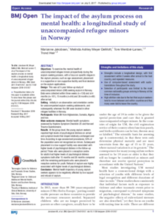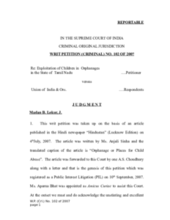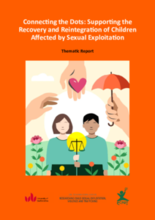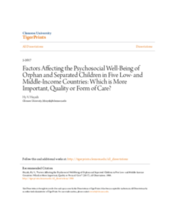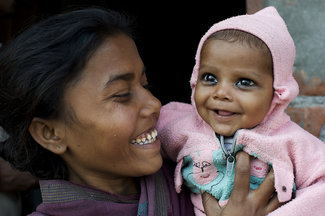

Displaying 471 - 480 of 753
Officials from the Kancheepuram Child Welfare Committee (CWC), who had gone to rescue five orphan children from an unregistered home in St. Thomas Mount (Chennai, India) on Wednesday, found that they had gone missing.
Nearly three dozen unregistered children's homes in Chennai, India were asked to shut down until they obtain legal registration. A total of 1,250 children from 34 homes were rehabilitated from the temporarily closed homes into some of the 49 registered homes in the city where there reportedly is spare capacity.
Following allegations that a home in Kerala, India had misappropriated funds and detained children, including 54 from Tamil Nadu, a child welfare committee in Ernakulam has directed the institution to trace their biological families.
This study examined the mental health of unaccompanied refugee minors during the asylum-seeking process, with a focus on specific stages in the asylum process, such as age assessment, placement in a supportive or non-supportive facility and final decision on the asylum applications.
This document, released by the Supreme Court of India on 5 May 2017, outlines decisions taken by the Court in regards to child care institutions in India.
The Supreme Court of India has "directed the Centre, state governments and union territories to complete the registration of all child care institutions by the year-end," according to this article from the Hindustan Times.
This article from Business Standard highlights a revent statement from the Supreme Court of India encouraging state governments and union territory administrations to consider the use of altnerative care options, such as adoption and fos
This report starts to collate evidence on what appears to be important to children who have experienced sexual exploitation.
This study explored the extent to which components of quality of care predicted psychosocial well-being of orphaned and separated children (OSC), as well as the extent to which these components of quality of care and demographic factors moderated the associations between care settings and psychosocial well-being of orphaned and separated children (OSC).
This news article describes the plight of India's missing children, focusing on efforts to end child trafficking in the country.

